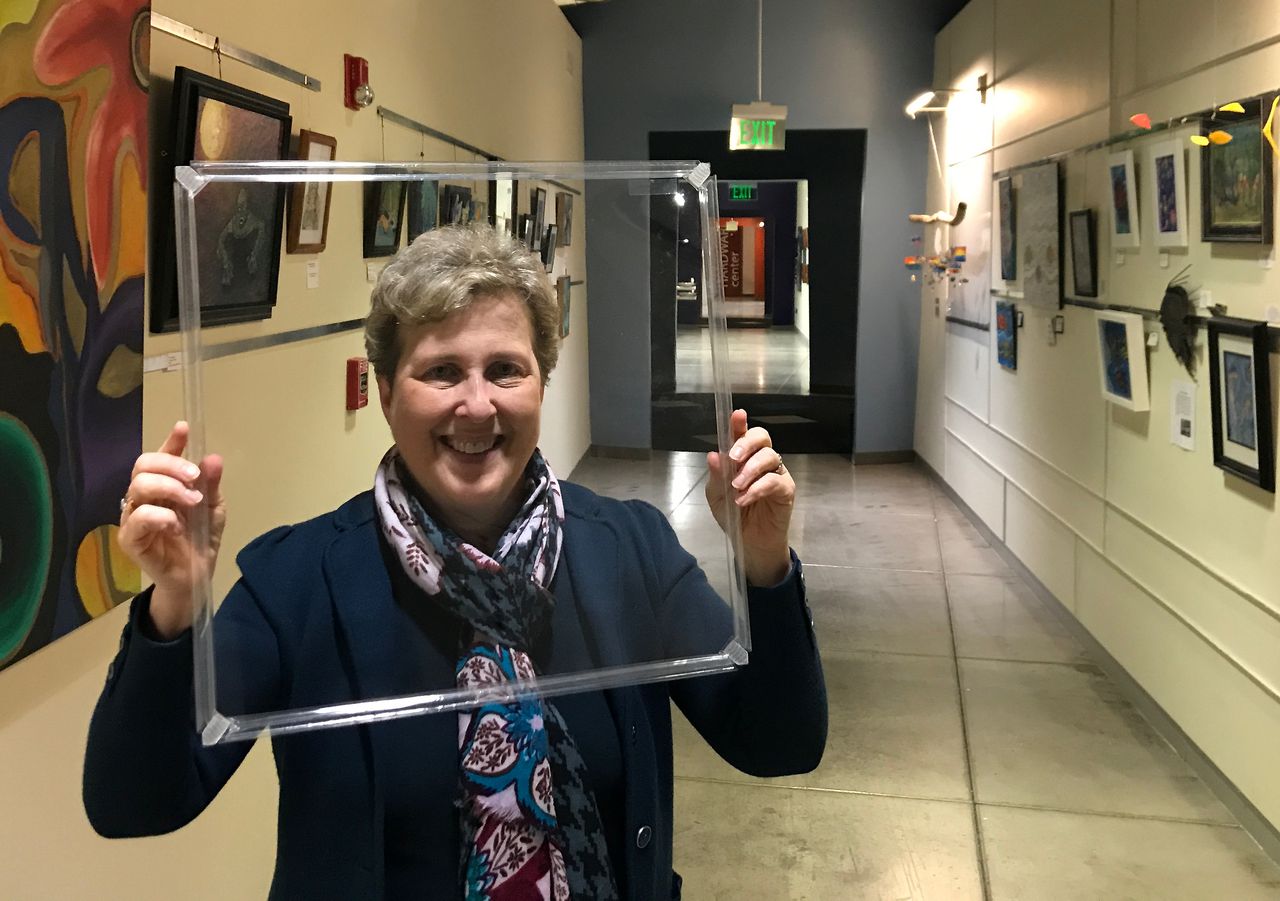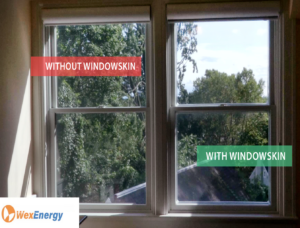DeltaClimeVT Founder Story: Slowing Climate, Change One Window at a Time
June 22, 2021

WexEnergy brings new technology to old windows, improving efficiency and reducing greenhouse gas emissions from buildings.
As Ron Wexler sat in his office one cold winter day back in 2014, he got to thinking about windows. The seven large casement windows in his office allowed natural light to flow into his workspace—along with freezing cold drafts from the icy wind outside.
Replacing the windows would be expensive in the 1925 building, prohibitively so at the time, but it bothered Ron that so much energy was seeping out those windows—not only because he was cold, but also because as a product developer and environmentalist, he understood how those old, drafty windows were contributing to the much larger problem of climate change.
“Older windows, really anything installed before 1999, waste almost thirty percent of the indoor air to the outside,” said Wexler, “meaning you have to burn more energy just to keep the room at a comfortable temperature. When you think about all the old windows in all the old buildings out there, that’s a lot of wasted energy.”
And, since heat generation is one of the largest contributors of greenhouse gas emissions, improving energy efficiency is one way to slow climate change. In fact, according to the Energy Efficiency Impact Report, additional investments in energy efficiency could lower U.S. greenhouse gas emissions by an additional 50 percent by 2050.
An entrepreneur at heart, Wexler began to sketch out an idea that would not only make his own office more comfortable, but perhaps help slow climate change.
“It had to be easy and affordable.”
Two core principles drove Wexler’s initial product designs: one, it had to be easy, and two, it had to be affordable. Ron’s wife and business partner, Rachel Rosen, added a third criteria: it had to be something she would want in her own house.
Wexler admits that he built “a lot of ugly prototypes” during development of the product.
“Every few weeks he would show me a new design and I would say, ‘not in my house,’” says Rosen. “Until one day, I couldn’t tell which window he was talking about. That’s when I knew he was onto something.”
The frameless prototype Wexler showed his wife was the precursor to WindowSkins—a clear, interior mounted window panel that creates an insulation gap on existing windows.

Measured to the exact dimensions of the window pane—not the frame or casing—the completely transparent WindowSkin fits over an existing window, improving efficiency by adding an extra layer of thermal insulation. Single-pane windows perform more like double-pane, and double-pane more like triple.
As for affordability, WindowSkins are priced at about 15 percent the cost of a new window replacement.
A solution that can be implemented “yesterday.”
Convinced of the product, Rosen joined the company full time in 2017. With thirty years of experience in real estate, she brought business and marketing savvy to the husband-and-wife team, along with experience raising money and bringing in investors. “We make a pretty good team,” she said. “Ron is a product developer who understands business. I’m a business woman who understands product development.” In 2020, they brought on Scott Walker, a business engagement specialist.
The former president of a property management firm in Rochester, NY, Rosen saw opportunity in commercial buildings and multi-family dwellings. According to Rosen, nearly 40 percent of greenhouse gas emissions come from existing buildings—closer to 70 percent in major cities with older building stock.
What’s more, higher heating and cooling costs are often passed along to tenants. “Efficiency gets real when a tenant has to decide between paying the electric bill and buying food or medicine,” said Rosen, “but it’s hard for a landlord to justify replacing a window that ‘works’ when they have more immediate maintenance demands.”

Rosen recognized that the money savings would be a big incentive to building-owners and landlords, with the comfort of the building’s occupants and environmental benefits an added bonus. “Even the most altruistic will make a decision based on dollars and cents,” said Rosen, “which reaffirmed Ron’s insistence on making an affordable product.”
As the earth’s temperature continues to rise with devastating consequences, Wexler and Rosen both feel a sense of urgency. “The energy efficiency of a window lasts 20 to 25 years,” said Rosen. “But a window will function for 80 to 100 years. We can’t reduce carbon emissions only through new construction—we don’t have that luxury of time. We need to be implementing short-term solutions that slow down climate change yesterday.”
Proving the product, one competition at a time.
With the prototype ready and a market opportunity identified, WexEnergy entered the 2020 DeltaClimeVT accelerator program. Normally an in-person event that brings together entrepreneurs, mentors, and business leaders, the 2020 cohort was the first to experience the multi-day accelerator event via Zoom.
“Honestly, it was tough,” said Rosen. “We spent five hours a day on Zoom when nobody knew how to do Zoom. But we decided early on to make the most of every minute despite the less than ideal circumstances. By the end, we were better able to explain our value proposition and articulate what makes us different. We absolutely would not have had as many successes this past year if we had not gone through that process.”
And the successes are indeed racking up for WexEnergy. In addition to winning $10,000 at the DeltaClimeVT Energy 2020 event, WexEnergy also won the NYU Urban Future Prize Competition and the New York City Carbon Neutrality Innovation Contest, both precursors to the company’s announcement this month that they have been selected by the U.S. General Services Administration (GSA) and Department of Energy for the GSA’s Green Proving Ground Program. WexEnergy is one of only five American-made technologies selected this year by the GSA.
“Winning these competitions and being selected by trusted organizations working to solve climate change gave our product the credibility it needed to be noticed by the major utilities,” said Rosen, adding that WexEnergy is now working with Con Edison, PSEG, and TVA. “We would not have been as well positioned for these opportunities without the feedback and advice we received at DeltaClime.”
Read More Stories Like This:
- Pilot Programs to Expand EV Charging in Vermont
- Buildings As Batteries?
- Compost for a Cleaner Planet
About DeltaClimeVT – A Climate Economy Business Accelerator
Managed by the Vermont Sustainable Jobs Fund (VSJF), the DeltaClimeVT business accelerator is a Vermont-based program serving startup and seed-stage ventures focusing on energy and climate economy innovation in the energy sector. The program provides an intense accelerated learning and business development process designed to test assumptions, expose and remediate business vulnerabilities, prepare for significant investment, and provide a platform for rapid scaling. As a proven leader in sustainability, Vermont offers participants access to a large number of entrepreneurial climate economy and energy experts throughout the program. For more details, visit deltaclimevt.com or contact Geoff Robertson at 802-828-3753.




